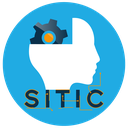Executive Secretary

III International Symposium on “Generation and Transfer of Knowledge for Digital Transformation
SITIC 2025
Abstract
Higher education institutions face multiple challenges when implementing academic information systems, especially during their initial phase. These challenges often manifest themselves in functional errors, adaptation difficulties, and overloaded service channels, affecting institutional efficiency.
The purpose of this study was to analyze the primary errors that occurred during the implementation of the Academic Component of the Academic Information System (AIS) at the University of Quindío, Colombia, using the statistical technique Multiple Correspondence Analysis (MCA) as the main methodological tool.
A quantitative, exploratory, and descriptive approach was adopted, based on the analysis of historical records from 2017-2018. After a data cleaning and categorization process, MCA and K-Means clustering were applied to identify associations between variables and segment the types of requests. This study provides a solid empirical basis for improving the management of academic systems in university settings. Furthermore, it proposes a replicable methodology that can be used to optimize processes, reduce errors, and guide future institutional decisions in the technological field.
Resumen
Las instituciones de educación superior enfrentan múltiples desafíos al implementar sistemas de información académicos, especialmente durante su fase inicial. Estos retos suelen manifestarse en errores funcionales, dificultades de adaptación y sobrecarga en los canales de atención, afectando la eficiencia institucional.
El presente estudio tuvo como finalidad analizar los errores primarios ocurridos durante la implantación del Componente Académico del Sistema de Información SAC en la Universidad del Quindío, Colombia, utilizando la técnica estadística Análisis de Correspondencia Múltiple (ACM) como herramienta metodológica principal.
Se adoptó un enfoque cuantitativo, exploratorio y descriptivo, basado en el análisis de registros históricos del sistema desde 2017-2018. Tras un proceso de depuración y categorización de datos, se aplicó ACM y clustering con K-Means para identificar asociaciones entre variables y segmentar los tipos de solicitudes. Este estudio aporta una base empírica sólida para mejorar la gestión de sistemas académicos en entornos universitarios. Además, propone una metodología replicable que puede ser utilizada para optimizar procesos, reducir errores y orientar futuras decisiones institucionales en el ámbito tecnológico.
About The Speaker

Ing. Melissa Aldana

Discussion

 Gold
Gold
 Gold
Gold
 Gold
Gold
 Gold
Gold
 Silver
Silver